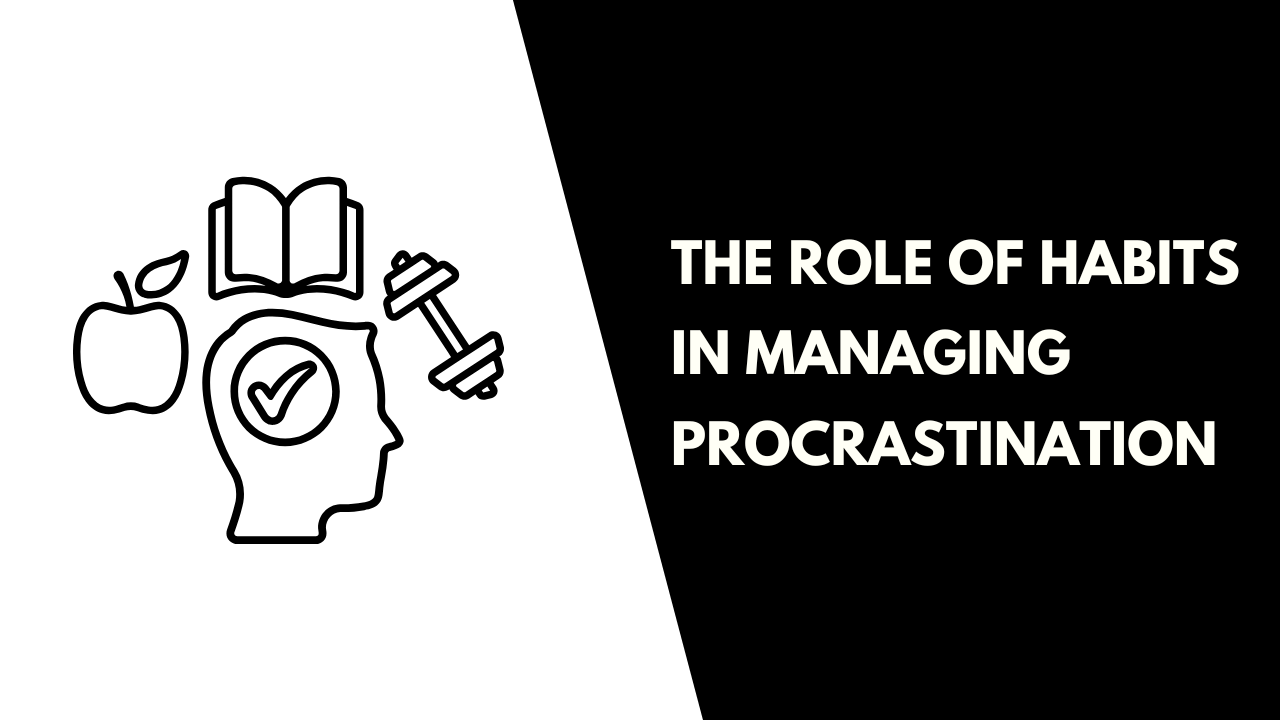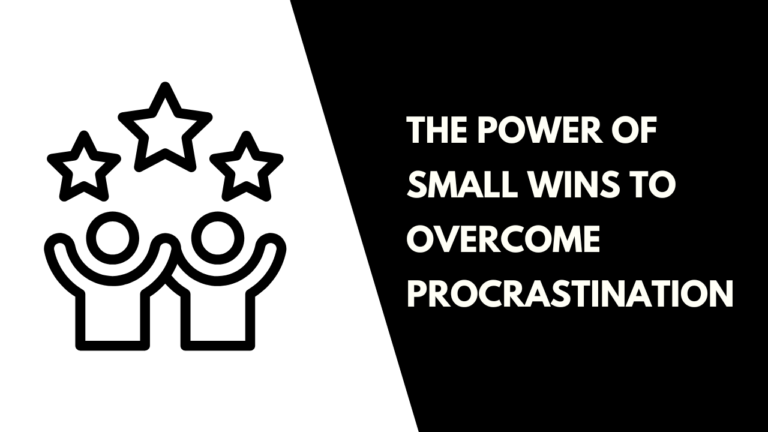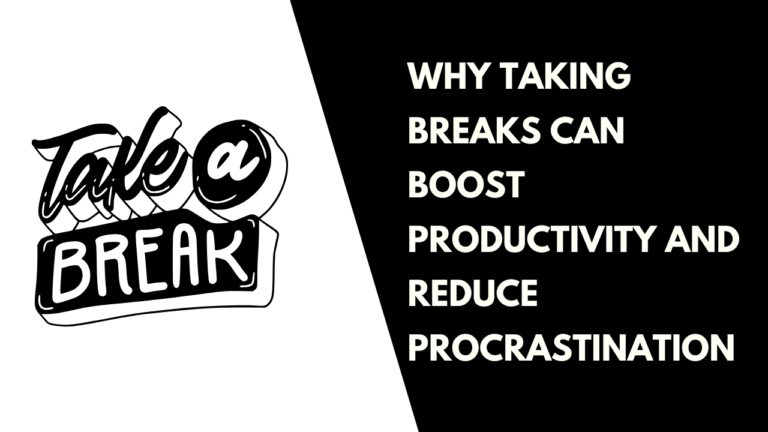The Role of Habits in Managing Procrastination
The Role of Habits in Managing Procrastination
Procrastination is a silent thief that robs us of time, productivity, and peace of mind. We often find ourselves postponing tasks that matter, only to scramble under pressure or miss opportunities altogether. But what if the solution isn’t a Herculean effort to overhaul our lives, but something as simple as building better habits? Let’s dive into the fascinating role of habits in managing procrastination and how you can leverage them to transform your productivity.
Table of Contents
ToggleUnderstanding Procrastination: A Habit in Itself
Before exploring how habits can combat procrastination, it’s essential to understand that procrastination often stems from ingrained behavioral patterns. When faced with an unpleasant or challenging task, our brain gravitates towards activities that offer instant gratification—scrolling through social media, binge-watching shows, or tidying up. Over time, these avoidance tactics become habits that perpetuate procrastination.
For instance, imagine Sarah, a college student. Every time she’s supposed to study, she finds herself cleaning her room instead. This pattern repeats until cleaning becomes her go-to procrastination habit. Recognizing procrastination as a habit is the first step in breaking the cycle.
Why Habits Matter in Tackling Procrastination
Habits are the building blocks of our daily lives. According to research, approximately 40% of our actions are habitual. They’re automated responses that require minimal mental energy, allowing us to navigate our days efficiently. When harnessed effectively, habits can be powerful tools to replace procrastination with productivity.
The role of habits in managing procrastination lies in their ability to create structure, reduce decision fatigue, and make progress feel automatic. Instead of relying on willpower, which is finite and often depleted, habits anchor you to consistent action.
The Science Behind Habits
Habits operate through a simple neurological loop:
Cue: A trigger that initiates the behavior (e.g., a specific time, place, or feeling).
Routine: The behavior or action itself.
Reward: The benefit you gain, reinforcing the habit.
By understanding this loop, you can design habits that counter procrastination. For example, if your habit is to delay work by checking your phone, identify the cue (boredom or stress), replace the routine (start a small task instead), and reward yourself (acknowledge the progress).
Building Habits to Manage Procrastination
Here are actionable strategies to harness the role of habits in managing procrastination:
1. Start Small and Specific
One of the biggest mistakes people make is trying to overhaul their entire routine overnight. Instead, focus on small, specific habits that are easy to implement. For instance:
If you’re procrastinating on writing a report, commit to writing just one sentence daily.
If exercising feels overwhelming, start with 5 minutes of stretching.
Starting small reduces resistance and makes the habit achievable. Over time, these small actions snowball into significant progress.
Example: John, a software developer, struggled to review his code daily. He started with a habit of spending just five minutes each morning on reviews. Gradually, those five minutes grew into focused 30-minute sessions, significantly improving his productivity.
2. Use the Power of Routines
Routines provide structure, making it easier to stay on track. Develop a routine that incorporates productive habits, such as:
Setting aside the first hour of your day for high-priority tasks.
Using time-blocking to allocate focused work periods.
A consistent routine minimizes decision fatigue and reduces the likelihood of procrastination. The more predictable your schedule, the less room there is for distractions.
Example: Emily, a freelance writer, found herself procrastinating on client projects. She created a morning routine: 30 minutes of exercise, a healthy breakfast, and two hours of uninterrupted writing. This routine became her anchor, ensuring she met deadlines without last-minute stress.
3. Pair Habits with Triggers
Linking a new habit to an existing one, known as habit stacking, can enhance its effectiveness. For example:
After brewing your morning coffee, spend 10 minutes planning your day.
After brushing your teeth at night, reflect on your accomplishments.
This technique leverages the cue from an established habit to initiate the new one, making it easier to stick with over time.
4. Break Tasks into Bite-Sized Pieces
Procrastination often arises from feeling overwhelmed by the size of a task. Break tasks into smaller, manageable chunks and focus on completing one piece at a time. Celebrate each milestone to maintain motivation.
Example: Raj, an entrepreneur, felt daunted by the idea of launching his website. Instead of tackling it all at once, he created a habit of completing one small task daily, such as writing a blog post or designing a single webpage. Within a month, his website was live.
5. Replace Avoidance with Productive Alternatives
When the urge to procrastinate strikes, have a list of productive alternatives ready. For example:
Instead of scrolling through social media, spend 5 minutes decluttering your workspace.
Instead of binge-watching TV, read a chapter of a book related to your goals.
By redirecting your energy to productive activities, you’re reinforcing positive habits that chip away at procrastination.
Overcoming Challenges in Habit Formation
Building habits to combat procrastination isn’t always smooth sailing. Here’s how to address common obstacles:
1. Lack of Immediate Rewards
Humans are wired for instant gratification, making it challenging to stick to habits that don’t offer immediate results. Counter this by creating short-term rewards:
Treat yourself to a favorite snack after completing a task.
Use a habit tracker to visualize your progress and stay motivated.
2. Setbacks and Slips
Setbacks are inevitable, but they don’t have to derail your efforts. Treat them as learning opportunities and refocus on your goals. Remember, consistency matters more than perfection.
3. Overcoming Negative Self-Talk
Procrastination is often fueled by fear of failure or self-doubt. Replace negative self-talk with affirmations and focus on progress rather than perfection.
Real-Life Success Story: The Power of Habits
Meet Priya, a marketing professional juggling multiple responsibilities. She often procrastinated on her work, leading to late nights and burnout. Determined to change, she implemented the following habits:
Morning Planning: Spent 10 minutes planning her day every morning.
Pomodoro Technique: Worked in focused 25-minute intervals, followed by 5-minute breaks.
Daily Reflection: Reviewed her accomplishments each evening.
These simple habits transformed her workflow. By addressing tasks proactively and reflecting on her progress, Priya significantly reduced procrastination and regained control over her schedule.
Conclusion
The role of habits in managing procrastination cannot be overstated. By understanding how habits work and intentionally designing ones that align with your goals, you can break free from the cycle of procrastination. Start small, stay consistent, and remember: every step forward counts.
So, what habits will you start building today? The journey to a more productive, fulfilling life begins with a single step. Make it count!
“Stop postponing your dreams! From Delay to Done is your ultimate guide to conquering procrastination. Grab your copy today on Amazon!







